When he was named national education minister, following the ruling coalition’s internal crisis prompted by the government defeat in the PASO primaries, many said Jaime Perczyk would be a bulldozer, citing his background as a physical education teacher, former sportsman and Pan American Games medalist.
Besides graduating in physical education from Luján University, the 58-year-old has a postgraduate degree in Social Sciences and Humanities from Quilmes University and has been the chancellor of Hurlingham University, heading the National Inter-University Council.
Perczyk, who succeeded Nicolás Trotta as head of the education portfolio, directed national socio-educational policies from 2007 to 2009, was chief advisor in the Education Ministry from 2009 to 2011 and served as deputy minister under Alberto Sileoni (2011-2015).
Was virtually zero [classroom] attendance in 2020 an error?
Firstly, you have to separate the universities from the rest of the system, from what we call compulsory education. We’ll be able to make a complete evaluation of what should have been done – not only in education but also with the economy, public health or politics – once we’re out of the pandemic. Today all such evaluations are provisional.
What does, and should, worry me is what I must do from here on. Time does not allow me to roll the clock back and think about what I should have done. Any action links praxis and theory.
From our perspective we govern from within a framework of doctrine but it’s what you do and we have to see since [last] September 20 when I took my oath as minister how we have recovered classroom attendance and expanded space.
We have already achieved huge advances in terms of classroom attendance, in institutional terms, in each school, in each university and we have also built up consensus in political terms in favour of classroom attendance as from March 2 in conjunction with the other 24 provincial education ministers and almost 130 university chancellors.
We’ve agreed on a school year of 190 days of classes where I would stress not just starting school but making up for lost time.
Regardless of not being able to change the past, don’t you need a diagnosis to construct a future? A line joins up two points and you can only go forward with what comes from behind. And since you were also talking about political questions, Juntos por el Cambio made the lack of classes a focus of their campaign. Did that strategy have an electoral impact?
Allow me to dispute your first affirmation based on Euclidean geometry whose fifth postulate did not demonstrate whether a point passes through a straight line or infinity. Aside from that discussion, social life is more complex than defined by Euclidean geometry.
Objectively there was an electoral process which we lost. I’m a Peronist and we believe absolutely and categorically in the sovereign will of the people when it is expressed. And the people told us that they were dissatisfied with what we had done and that has an enormous level of complexity.
Our leadership has made certain definitions and we must advance in those definitions of economic growth, social development, educational and industrial policies, policies of various dimensions.
You said: “We face a change of paradigm because we must assume an asymmetrical responsibility, upholding the work of the teachers so that the students can learn. We’d have a conservative mentality if we had not benefited from what happened in the pandemic. Conservative in the sense of thinking that all times past were better.” What did the pandemic change for the better or what should change?
Nothing’s going to change unless we make it change. I’m a militant for full classroom attendance. We’ve got to get there and for that we need vaccination, face-masks and ventilation so that children can spend all day in class. Washing your hands is looking after yourself.
We are now preparing virtual classrooms for each Argentine school as a back-up for attendance like many universities in the world and most Argentine universities.
For extra-curricular hours?
For more hours, for the support of parents, to be able to help siblings, so that both the children and the teachers can follow up their work.
A hybrid system?
Combined, thus permitting classroom attendance to be better.
Daniel Filmus and Alberto Sileoni are both former education ministers who have returned to relevant posts. Why do you think they offered the ministry to you and not to its former occupants?
That I could not tell you.
How did the offer come about?
They summoned me on September 17 telling me that they thought I would be the one to make the changes.
Did Alberto Fernández make the call?
No, it was Santiago Cafiero, who was still Cabinet chief then, telling me that changes would be announced that night and that they had thought of me as the minister. That was Friday, September 17, and the next day I travelled with the president to La Rioja. The president gave me certain priorities – to which I am absolutely committed – and that Monday I was sworn in. Since that day we have been working on three central questions which I fully share. Every child must go to school, including those who have dropped out; we must seek them out one by one, invite them and embrace them. The second priority is 190 days of classroom attendance and the third is to prioritise content and recover knowledge – we have that responsibility.
You’ve been pointed out as being outside the rivalries of the academic world. Do those rivalries carry any value in the political sphere?
No.
Is it unfair to say that you’re more with Cristina than Alberto?
Yes, absolutely.
And is it fair to say that you are a representative of the Greater Buenos Aires universities and what they represent?
Insofar as I have represented them publicly and in the literal sense of the word, yes, I am. What I mean is that to represent comes from re-present and I think we must “re-present” that reality to millions of youngsters entering university. Yes, I want to re-present that, I believe in that, I believe in giving kids that possibility.
Was it an error to close down schools for so long?
But, excuse me, there is a difference from the opposition’s opinion. Was it an error of the Kirchnerism of Buenos Aires Province, [Governor Axel] Kicillof and La Cámpora, to have insisted that the president and his education minister not open schools sooner? I don’t know if it’s my job here to clear up that question but I do so in order to be able to respond.
It was not the opposition but City Hall which had a particular situation and took certain decisions while the national government took others. And we will have to evaluate, at the end of the pandemic, which decisions were correct and from which we will have to learn in order to construct a new theoretical and conceptual framework.
But concretely, if you had been education minister, would you have recommended opening the schools sooner?
No, no, no, I’m not going to answer questions in hindsight. I repeat, we will evaluate the pandemic once it is over.
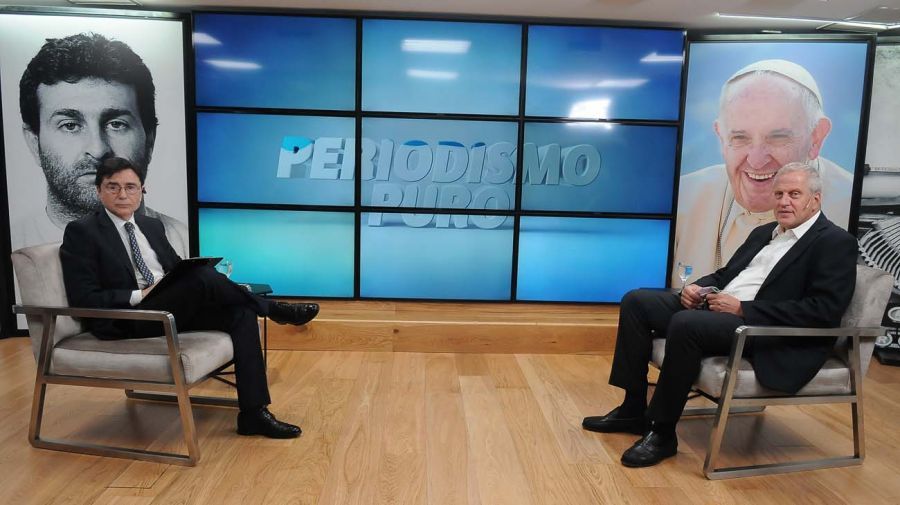
Your gesture in pushing aside The Bible and swearing in as a minister by the Constitution aroused comment, being interpreted as a reaffirmation of the historic struggle for lay education. Did that gesture have that political connotation?
That discussion of lay versus free education runs deeper. I also believe that it was one of the false contradictions into which we Argentines have fallen. The discussion was really about something else. It was like we politicians saying: “Let’s make a dummy to keep us entertained while other things are going on.” I wanted to swear by the Constitution, both the books were there and I thought it was more fitting to swear by the Constitution. But now I do not deny my affection, friendship and respect for those who have sworn, swear and will swear by The Bible and the Holy Gospels.
Is lay education important now?
Argentina is now different. Argentina now has a system, a Constitution and an education law stipulating that all education is public. That discussion about lay education is already contained in Law 1420, in Article 3, I think – I’d need to take another look. It says that religious instruction should be given by ministers of religion out of class and according to some outlooks, that law at no point says “lay.” It is not all myth, Law 1420 is lay. When you separate religious instruction from teaching and hold it out of class, this guarantees lay education. And others say the contrary, maintaining that this inclusion ensures religious training.
It’s a discussion which has been going on in Argentina since the legislation to structure the Argentine educational system, the school network which works at the same time. Today I believe there are two models, two types of school. One is the state school which is lay. Privately run public schools may be confessional or not, that is guaranteed by the laws, norms and international agreements.
Does a mixed system seem suitable to you?
It’s what we’ve got.
What is your own relationship to religión?
I’m an atheist but I’ve enormous respect for those who believe, for being able to believe.
In this series of interviews, the Chilean political philosopher Cristóbal Bellolio highlighted that Gabriel Boric coming to power signified a socio-cultural change – the generation of middle-class children reaching university who claimed unprecedented protagonism against the other elites of that country. Can we expect the generation of Greater Buenos Aires university graduates to trigger change in the future?
Yes, I think so. I think that, unlike Chile, we are a pretty plebeian country, partly because of free university education. Some never finish university whereas in other countries they simply don’t go. Whether they graduate or not, they went to university.
Now I believe there is a very great value in having this series of new universities which will give new life and protagonism to Argentine leadership with other experiences, other rights and other responsibilities. I also believe that Argentina has to discuss those rights and responsibilities and many of these kids I know will graduate with those rights and with the responsibility to be the protagonists of an Argentina yet to be transformed.
You entered the Ministry from the University of Hurlingham. What link did you have with the local mayor, Juan Zabaleta, who is today your Cabinet colleague (as Social Development minister)?
An extraordinary relationship. We arrived in December, 2015. He took over a town hall then in different political hands and he had to build a team and start governing. And I had a modest role of building up a public university as chancellor. And they were very difficult years because we lived in a very harsh period under a government bringing austerity and deindustrialisation in its wake with a very clear effect on Greater Buenos Aires. I was building up a university which the government did not want but it had to be done and we did it.
The national government didn’t want it?
It was a government which did not want any new universities or universities in Greater Buenos Aires. Indeed nothing was built in those four years. It had to be done and we started from scratch with joint political work. His [Zabaleta’s] administration permitted him to be re-elected and we built a university. We also believe that we carried out some very innovative things for the educational and university system which permitted us to shine. Indeed, in personal terms, it allowed me to be first the vice-president and then president of the National Inter-University Council on the basis of my university work. We started with 1,700 students and today we have 30,000. That speaks of work, production, publications and research.
What does that much-commented phrase of María Eugenia Vidal: “Nobody born poor in Argentina gets to university” or Macri’s about falling into public education suggest to you? How can you translate that without deepening the ‘grieta’ chasm?
Macri’s is a conceptual idea that public schooling is for the poor and that the others rise in society if they escape it but today they are falling. I don’t share that, we work for the public schools so that the kids there have computers.
Is it a question of class in Macri’s case?
It’s a concept.
And in Vidal’s case?
The same because they represent the same concept. I don’t define it as a question of class but as a concept of a model.
What unifies it behind the variables?
There is a concept of an educational model which is almost an idea of educational trickle-down. I would define two educational models but since they are models and I only have a minute to describe them, they might say, well, let’s just make a good secondary school, it doesn’t matter for how many or what level of coverage we might have because in the end it’s going to reach everybody. And the other model, in which I believe, is that everybody has to go to school and we have to transform schooling with everybody inside. In Argentina up to the 1980s we had good secondary schools attended by around 45 percent of children. It was good but half the population wasn’t there.
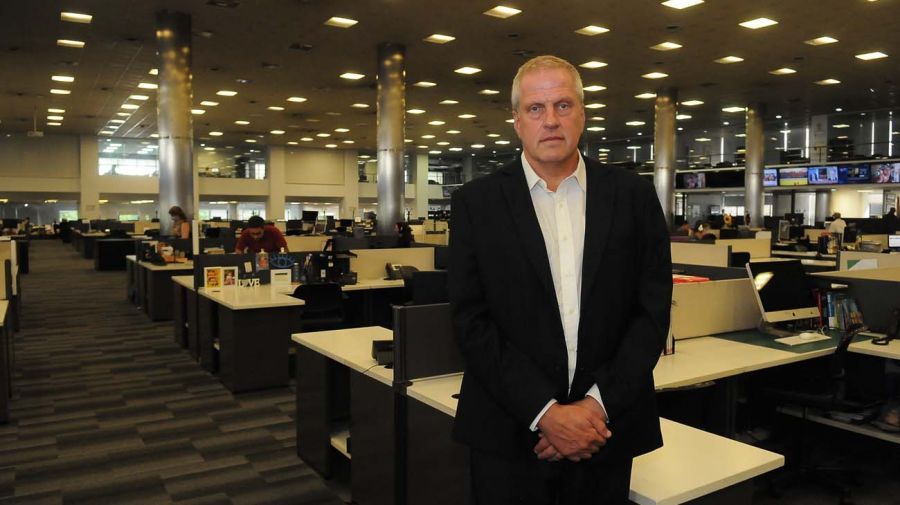
By making secondary school compulsory, 100 percent of children enter and since pressure is inversely proportional to volume (Boyle’s law), you have lower quality but for more people.
I don’t share the second part of your explanation. What I believe is that sectors are entering secondary school which did not enter before and we have the obligation to send everybody to school, giving them a good secondary education while making it better.
And at the same time private education increased.
At the same time that started in the 1960s, a process in which, since everybody entered primary school, some sectors started going to private schools.
While public schools seem inclusive, private schooling seems exclusive.
Private schools are starting to appear as a phenomenon for marking people out.
Is that wrong?
No, it isn’t, it’s part of a process of social inequality in Argentina. It’s more complex than seeing it just in terms of schooling or school as a part of that process. I don’t have that conservative mindset that all past times were better. There was a sevenfold difference between Argentina in 2001 and 2010 when poverty was only four percent. Then we have a moment of our crisis when the difference today between the top and bottom tenth of the population was 35 percent.
How much does education have to do with that process of decay?
Education does have to do with it, at least in part. What I believe is that the prime educational policy is economic policy.
The best way of sending all children well-dressed to school is for their parents to earn good salaries. In some other countries public schooling takes care of both transport and meals. It seems to me that there are questions of the socio-economic model which have deeply affected education.
You were asking me about demography – today there are very few neighbourhoods combining different classes, as was the rule in the Argentina of the 1970s. The rich have concentrated and the poor have concentrated, making for schools for the rich and schools for the poor because demography has an enormous incidence in this.
In 2018 a Chequeado.com report affirmed: “The two-fifths earning the lowest incomes in Greater Buenos Aires were those whose matrículation in national universities most evolved. In the 2008-2015 period the national university matriculation of the poorest fifth of the Greater Buenos Aires population grew 47 percent and the second-poorest 95 percent. On the other hand, the two-fifths with the highest incomes grew 21 and 28 percent.” Has that trend been maintained in recent years?
That argues against Vidal.
And does it continue currently despite the coronavirus crisis?
It does. And I’d like to say two or three things about that. Firstly, to dispute Vidal’s argument that the poor do not reach university.
You might say that the fact that more reach it does not mean that all do.
Neither does everybody in the top income group.
Máximo Kirchner did not want to go to university.
There are many in the top income groups who do not want to go. Here we have a responsibility to construct equal floors for everybody with a ceiling for nobody. That’s the challenge of social and educational policies. But that discussion over the poor not reaching university... the poor do. The priority is not university or kindergartens. I believe that the state has to set up universities and kindergartens, it has to do everything. That’s the challenge in societies as unequal as ours.
In this same series of interviews, the philosopher Michael Sandel highlighted that the access to elite universities in the United States was the main factor reproducing social inequality and along the same lines, the specialist in inequality Branko Milanovic spoke of a new plutocracy in the United States whose origin lies precisely in the university sphere. When you make the comparison between Argentina and the United States, what conclusion do you reach?
That does not seem so to me because we have a university system which is a rara avis.
Firstly, our system has very important levels for the region. Almost five percent of our population goes to university and out of that percentage, which is very important, 80 percent goes to state universities. In big, medium-sized and small universities, people from different classes come together, one of the few places in Argentina where that happens.
Before the different classes came together in primary school and today only in state universities.
Only the state universities today but we have the obligation to recover the rest.
Between 2007 and 2009 you were the secretary for Socio-educational Policies where you reportedly had an excellent relationship with the slum priests. My question is whether, arising from the crisis of the pandemic, you see today’s schools as also having a focus on social assistance and feeding children. Do you see school as repairing damage just in academic terms, as you proposed earlier, or also in social terms?
It seems to me that school is the place where everybody should get together. It’s the best place for all kids. And school also seems to me where we have been pushing the vaccination campaign, which at the same time seems the challenge facing society.
So schools would be the place where people meet, like churches in the past.
Schools are the meeting-place. At the same time we have to do two things. We have to insure against what does not allow children to learn but at the same time guarantee that they learn in the time available. And we have to place language and maths at the heart of our aspirations as the two central structures of Argentine schooling.







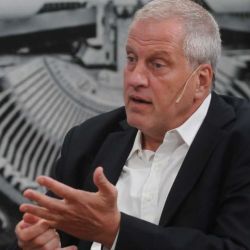


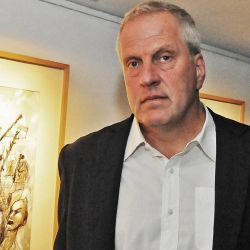
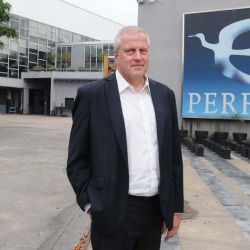
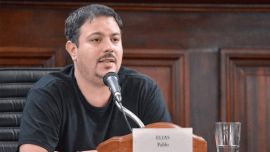











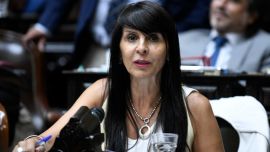
Comments